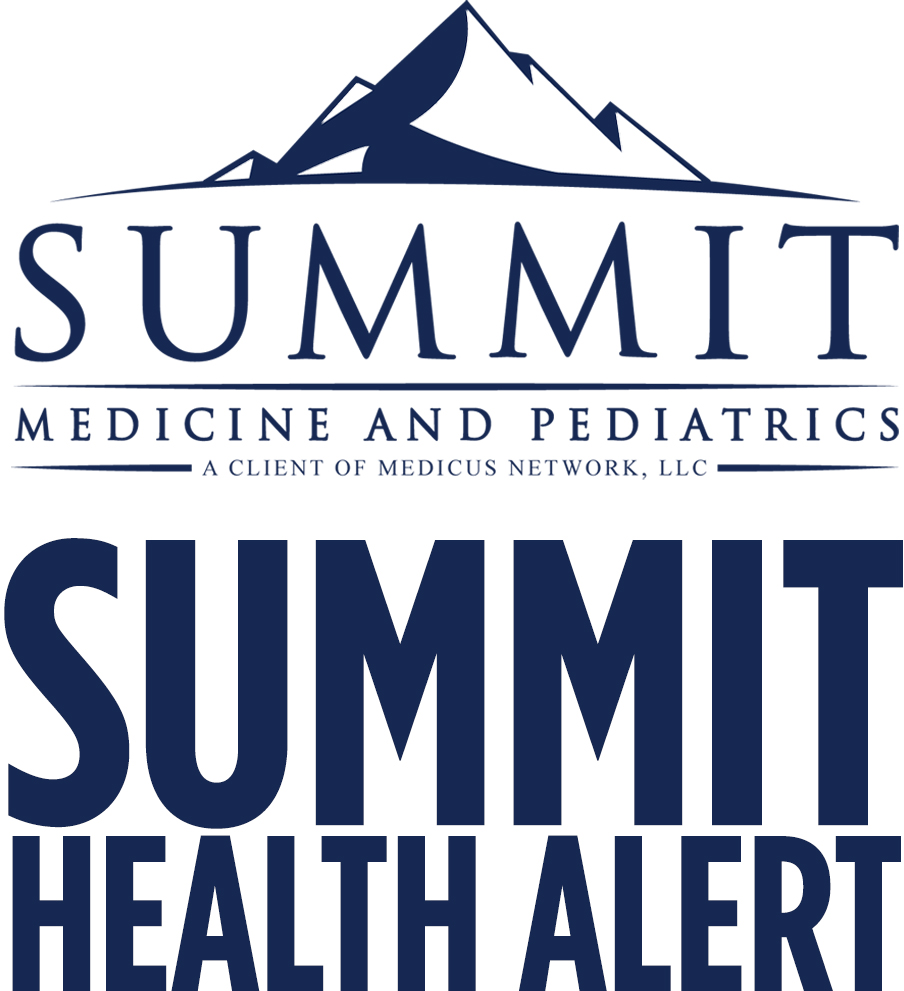At Summit Medicine and Pediatrics, we are keenly committed to staying on top of the most recent and most important news and events in healthcare. We’ve created our Summit Health Alerts so that you can be informed, empowered and involved in making the right decisions for you, and for your friends and loved ones.
Always stay alert!
ASTHMA
Asthma is a disease of significant concern in the United States. The disease affects 25 million people in the United States (8% of the population), and the incidence of asthma increases each year. Asthma is responsible for more than 500,000 hospitalizations each year. Both children and adults can get asthma, and children are at added risk of developing allergic asthma if there is an existing allergic condition, or if there is a family history of asthma or allergies.
DIABETES
Diabetes mellitus affects 29 million people in the United States (9.3% of the population). In most cases, the condition can be controlled with a combination of changes in lifestyle and nutrition, and with administration of medications. Deleterious effects of diabetes mellitus are most often seen after 10 years of persistently high blood sugar levels, and the complications include vision loss and blindness, nerve damage (diabetic neuropathy), heart disease, stroke, circulatory problems, kidney disease, and poor wound healing.
GERD
Approximately 60% of the US population experiences signs or symptoms of GERD at least once a year, and close to 30% experiences signs or symptoms of GERD weekly. For all patients with GERD, signs and symptoms often subside quickly using medication or other treatment. However, if GERD is untreated for an extended period of time, a more serious condition of chronic esophagitis, an inflamed state in which refluxed stomach acid can damage the esophageal lining and cause bleeding or ulcers, may occur. In addition, scarring from damaged esophageal tissue can narrow the esophageal passage and form strictures that makes swallowing difficult.
HTN
All patients over the age of 18 should begin a regimen of periodic blood pressure monitoring, both at home and at the doctor’s office during annual wellness examinations. In many cases, the diagnosis of hypertension is delayed because patients fail to recognize the importance of early identification of elevated blood pressures, patients fail to recognize the importance of visiting their doctor routinely, or patients inappropriately attribute a single measurement of elevated blood pressure to an upsetting event within hours of measurement and fail to follow-up with additional measurements to confirm stability of blood pressure in the normal range.

COVID-19 Pandemic in Arizona: Weekly Update, 16 May 2020
Summit Medicine and Pediatrics is tracking the spread and impact [...]
COVID-19 Pandemic in Arizona: Weekly Update, 09 May 2020
Summit Medicine and Pediatrics is tracking the spread and impact [...]
COVID-19 Pandemic in Arizona: Weekly Update, 02 May 2020
Summit Medicine and Pediatrics is tracking the spread and impact [...]
COVID-19 Pandemic in Arizona: Weekly Update, April 25, 2020
Summit Medicine and Pediatrics is tracking the spread and impact [...]
COVID-19 Pandemic in Arizona: Weekly Update, April 18, 2020
Summit Medicine and Pediatrics is tracking the spread and impact [...]
Arizona Coronavirus (COVID-19) Weekly Update: April 11, 2020
Summit Medicine and Pediatrics is tracking the spread of COVID-19 [...]



